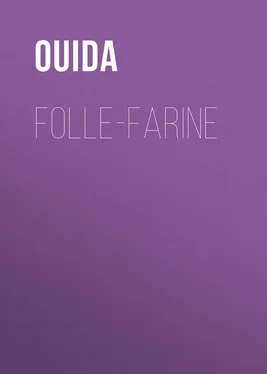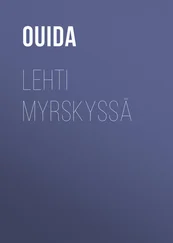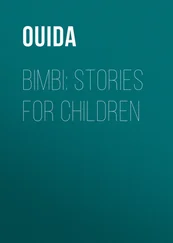Ouida - Folle-Farine
Здесь есть возможность читать онлайн «Ouida - Folle-Farine» — ознакомительный отрывок электронной книги совершенно бесплатно, а после прочтения отрывка купить полную версию. В некоторых случаях можно слушать аудио, скачать через торрент в формате fb2 и присутствует краткое содержание. Жанр: foreign_prose, literature_19, foreign_antique, на английском языке. Описание произведения, (предисловие) а так же отзывы посетителей доступны на портале библиотеки ЛибКат.
- Название:Folle-Farine
- Автор:
- Жанр:
- Год:неизвестен
- ISBN:нет данных
- Рейтинг книги:5 / 5. Голосов: 1
-
Избранное:Добавить в избранное
- Отзывы:
-
Ваша оценка:
- 100
- 1
- 2
- 3
- 4
- 5
Folle-Farine: краткое содержание, описание и аннотация
Предлагаем к чтению аннотацию, описание, краткое содержание или предисловие (зависит от того, что написал сам автор книги «Folle-Farine»). Если вы не нашли необходимую информацию о книге — напишите в комментариях, мы постараемся отыскать её.
Folle-Farine — читать онлайн ознакомительный отрывок
Ниже представлен текст книги, разбитый по страницам. Система сохранения места последней прочитанной страницы, позволяет с удобством читать онлайн бесплатно книгу «Folle-Farine», без необходимости каждый раз заново искать на чём Вы остановились. Поставьте закладку, и сможете в любой момент перейти на страницу, на которой закончили чтение.
Интервал:
Закладка:
There was a gentler luster in her eyes, and her mouth had the faint light of a half smile upon it; she did not know what hope meant; it never seemed possible to her that her fate could be other than it was, since so long the messengers and emissaries of her father's empire had been silent and leaden-footed to her call.
Yet, in a manner, she was comforted, for had not two mouths that day bidden her "wait"?
She entered at length the little wood of Yprès, and heard that rush and music of the deep mill water which was the sole thing she had learned to love in all the place.
Beyond it were the apple orchards and fruit gardens which rendered Claudis Flamma back full recompense for all the toil they cost him—recompense so large, indeed, that many disbelieved in that poverty which he was wont to aver weighed so hardly and so lightly on him. Both were now rich in all their maturer abundance, since the stream which rushed through them had saved them from the evil effects of the long drought so severely felt in all other districts.
The cherry-trees were scarlet with their latest fruit; the great pumpkins glowed among their leaves in tawny orange heaps; little russet-breasted bullfinches beat their wings vainly at the fine network that enshrouded the paler gold of the wall apricots; a gray cat was stealing among the delicate yellows of the pear-shaped marrows; where a round green wrinkled melon lay a-ripening in the sun, a gorgeous dragon-fly was hovering, and a mother-mavis, in her simple coif of brown and white and gray, was singing with all the gladness of her sunny summer joys.
Beyond a hedge of prickly thorn the narrower flower-garden stretched, spanned by low stone walls, made venerable by the silvery beards of lichens; and the earth was full of color from the crimson and the golden gladioli; from the carmine-hued carnations; from the deep-blue lupins, and the Gloire de Dijon roses; from the green slender stems and the pure white cups of the virginal lilies; and from the gorgeous beetles, with their purple tunics and their shields of bronze, like Grecian hoplites drawn in battle array. While everywhere, above this sweet glad garden world, the butterflies, purple and jeweled, the redstarts in their ruby dress, the dainty azure-winged and blue warblers, the golden-girdled wasp with his pinions light as mist, and the velvet-coated bee with his pleasant harvest song, flew ever in the sunlight, murmuring, poising, praising, rejoicing.
The place was beautiful in its own simple, quiet way; lying in a hollow, where the river tumbled down in two or three short breaks and leaps which broke its habitual smooth and sluggish form, and brought it in a sheet of dark water and with a million foam-bells against the walls of the mill-house and under the ponderous wheels.
The wooden house itself also was picturesque in the old fashion when men builded their dwellings slowly and for love; common with all its countless carvings black by age, its jutting beams shapen into grotesque human likeness and tragic masks; its parquetted work run over by the green cups of stoneworts, and its high roof with deep shelving eaves bright with diapered tiles of blue and white and rose, and alive all day with curling swallows, with pluming pigeons, with cooing doves.
It was beautiful; and the heart of Reine Flamma's young daughter doubtless would have clung to it with all a child's instinct of love and loyalty to its home had it not been to her only a prison-house wherein three bitter jailers forever ruled her with a rod of iron—bigotry and penury and cruelty.
She flung herself down a moment in the garden, on the long grass under a mulberry-tree, ere she went in to give her account of the fruit sold and the moneys brought by her.
She had been on foot since four o'clock in the dawn of that sultry day; her only meal had been a bowl of cold milk and a hunch of dry bread crushed in her strong small teeth. She had toiled hard at such bodily labor as was set to her; to domestic work, to the work of the distaff and spindle, of the stove and the needle, they had never been able to break her; they had found that she would be beaten black and blue ere she would be bound to it; but against open air exertion she had never rebelled, and she had in her all the strength and the swiftness of the nomadic race of the Liebana, and had not their indolence and their dishonesty.
She was very hungry, she was again thirsty; yet she did not break off a fruit from any bough about her; she did not steep her hot lips in any one of the cool juicy apricots which studded the stones of the wall beyond her.
No one had ever taught her honesty, except indeed in that dim dead time when Phratos had closed her small hands in his whenever they had stretched out to some forbidden thing, and had said, "Take the goods the gods give thee, but steal not from men." And yet honest she was, by reason of the fierce proud savage independence in her, and her dim memories of that sole friend loved and lost.
She wanted many a thing, many a time—nay, nearly every hour that she lived, she wanted those sheer necessaries which make life endurable; but she had taught herself to do without them rather than owe them, by prayer or by plunder, to that human race which she hated, and to which she always doubted her own kinship.
Buried in the grass, she now abandoned herself to the bodily delights of rest, of shade, of coolness, of sweet odors; the scent of the fruits and flowers was heavy on the air; the fall of the water made a familiar tempestuous music on her ear; and her fancy, poetic still, though deadened by a life of ignorance and toil, was stirred by the tender tones of the numberless birds that sang about her.
"The earth and the air are good," she thought, as she lay there watching the dark leaves sway in the foam and the wind, and the bright-bosomed birds float from blossom to blossom.
For there was latent in her, all untaught, that old pantheistic instinct of the divine age, when the world was young, to behold a sentient consciousness in every leaf unfolded to the light; to see a soul in every created thing the day shines on; to feel the presence of an eternal life in every breeze that moves, in every grass that grows; in every flame that lifts itself to heaven; in every bell that vibrates on the air; in every moth that soars to reach the stars.
Pantheism is the religion of the poet; and nature had made her a poet, though man as yet had but made of her an outcast, a slave, and a beast of burden.
"The earth and the air are good," she thought, watching the sunrays pierce the purple heart of a passion-flower, the shadows move across the deep brown water, the radiant butterfly alight upon a lily, the scarlet-throated birds dart in and out through the yellow feathery blossoms of the limes.
All birds were her friends.
Phratos had taught her in her infancy many notes of their various songs, and many ways and means of luring them to come and rest upon her shoulder and peck the berries in her hand.
She had lived so much in the open fields and among the woods that she had made her chief companions of them. She could emulate so deftly all their voices, from the call of the wood dove to the chant of the blackbird, and from the trill of the nightingale to the twitter of the titmouse, that she could summon them all to her at will, and have dozens of them fluttering around her head and swaying their pretty bodies on her wrist.
It was one of her ways that seemed to the peasantry so weird and magical, and they would come home from their fields on a spring daybreak and tell their wives in horror how they had seen the devil's daughter in the red flush of the sunrise, ankle-deep in violets, and covered with birds from head to foot, hearing their whispers, and giving them her messages to carry in return.
One meek-eyed woman had dared once to say that St. Francis had done as much and it had been accredited to him as a fair action and virtuous knowledge, but she was frowned down and chattered down by her louder neighbors, who told her that she might look for some sharp judgment of heaven for daring to couple together the blessed name of the holy saint and the accursed name of this foul spirit.
Читать дальшеИнтервал:
Закладка:
Похожие книги на «Folle-Farine»
Представляем Вашему вниманию похожие книги на «Folle-Farine» списком для выбора. Мы отобрали схожую по названию и смыслу литературу в надежде предоставить читателям больше вариантов отыскать новые, интересные, ещё непрочитанные произведения.
Обсуждение, отзывы о книге «Folle-Farine» и просто собственные мнения читателей. Оставьте ваши комментарии, напишите, что Вы думаете о произведении, его смысле или главных героях. Укажите что конкретно понравилось, а что нет, и почему Вы так считаете.











